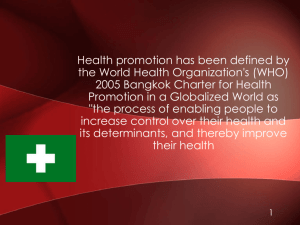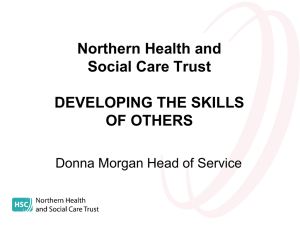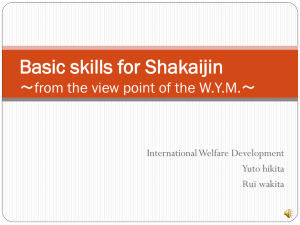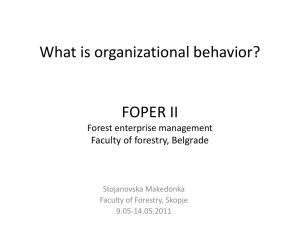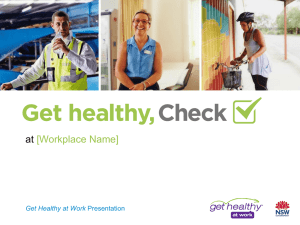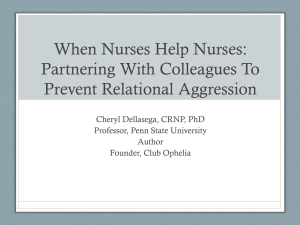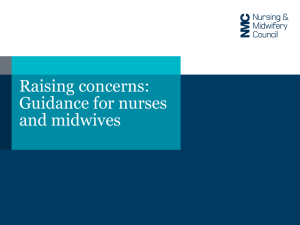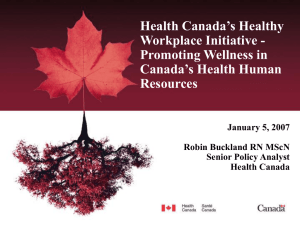ALED JONES, CARDIFF - Professional Standards Authority
advertisement
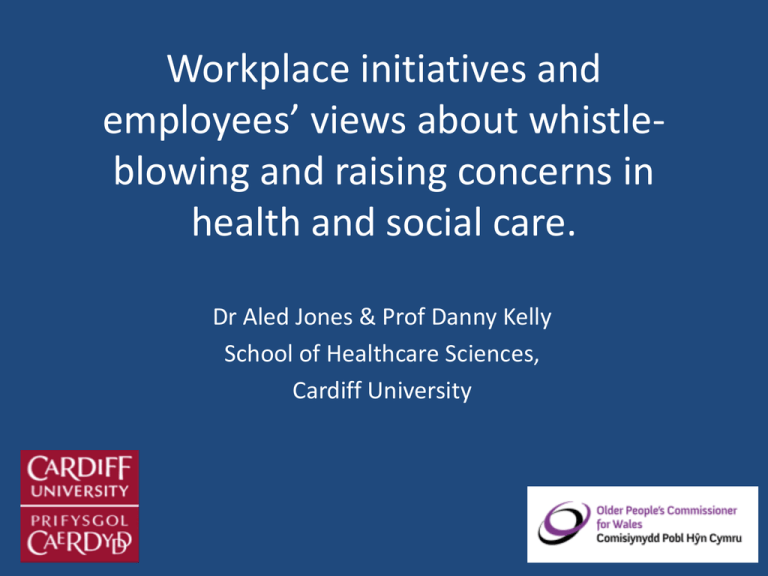
Workplace initiatives and employees’ views about whistleblowing and raising concerns in health and social care. Dr Aled Jones & Prof Danny Kelly School of Healthcare Sciences, Cardiff University The study Commissioned and undertaken on behalf of the Older People’s Commissioner for Wales. Exploring factors which inhibited/promoted raising concerns in the health and social care workplace. Background: organizational failure and silence • Healthcare literature often suggests that when organizations “unexpectedly” fail employees remain “silent” • Silence is the “dominant response within many organisations” (Morrison and Milliken 2000: 707) • “Cultures of silence exist” within healthcare (Moore and McAuliffe 2012: 333). An alternative view…… • Catastrophic organizational failure is rarely “unexpected” event for employees. • Organizations are often “noisy” and full of “chatter” related to “staff concerns” • A period of time exists when emerging problems can be detected; “incubation periods” (Turner 1976, Vaughan 1990) exist. • Evidence – every public inquiry into health failure since 1967; sociology of disaster literature. The study • 60 interviews (individual & focus group) • Participants recruited from hospitals, nursing homes, residential care, domiciliary care. • Included: Managers, staff nurses, care assistants, physiotherapists, ancillary workers (Cleaners, kitchen staff), student nurses. Managing the workforce & workplace behaviour • Were employees encouraged to raise concerns? • Managerial interventions existed on a ward or team level – creating spaces/opportunities for employees to raise issues and concerns • Which counter-balanced: • Norms/behaviours which suppresses employee concerns being raised. Management interventions Workplace “Management” information generating and seeking interventions • Range of “socio-material” interventions at a ward or team level. • Staff induction communicated that that continual feedback/interaction is an expectation and prosocial behaviour. • Team meetings arranged - fixed/open agenda. • “Open door policy” – creates/signals interactional space. • Suggestion/feedback boxes – issues then discussed at meetings. Open door and team meetings as “information ground” • Creating an information sharing space (“information ground”) in team meetings for staff to vent their feelings and gain mutual support. • Useful as there has been a demise of informal information grounds such as the morning tea break ritual, staff rooms, doctors’ mess….etc • Which historically provided time, space and a workplace environment for front-line nurses, doctors and other care workers (Lee 2001; Nettleton et al 2008). Lee, D. (2001) The morning tea break ritual: a case study, International Journal of Nursing Practice, 7, 2, 69–73 Nettleton S et al (2008) Regulating medical bodies? The consequences of the modernisation of the NHS and the disembodiement of clinical knowledge. Soc Health and Illness 30:2 Formative spaces • They combine support and challenge in a high trust environment, which is backed by a strong professional ethos and in which participants feel safe enough to bring personal and professional dimensions together (McGivern et al 2009). Information grounds and spaces – any role for regulation? • Should informal information sharing spaces and opportunities be regulated for and the data captured e.g. through statutory supervision? • Statutory Supervision of Midwives – ineffective in Morecambe Bay. • Consultation around regulation of nurses – the need for mandatory supervision and documentation? • How do practitioners view regulators? Regulators – practitioners view • Disproportionate - “Heavy handed”; “Overreaction”; ineffective when needed. • Codes of conduct limited or no use as a resource for practitioners. • Heightened practitioners awareness of need for defensive practices - “protect yourself first” • Alternatively - personal ethics – frequently provided a “reaction point” …..”if that was my…..mother/brother/grandparent” The way forward – right-touch regulation • Right-touch regulation recognises that there is usually more than one way to solve a problem and that regulation is not always the best answer. It may be more proportionate, for instance, to promote greater cooperation and sharing of good practice. • Professional and personal practice Jones A and Kelly D (2014) Whistle-blwoing and workplace culture in older peoples’ care: qualitative insights from the health and social care workforce. Sociology of Health & Illness (in press) Kelly, D. M. and Jones, A. (2014) When care is needed: The role of whistle blowing in promoting best standards from an individual and organisational perspective. Quality in Ageing (in press) • Thanks to those who participated in the study. • Ann Gallagher (Surrey Uni), Tricia Brown (Cardiff Uni), for contributing to final report and being “critical friends” to the project. • The Study Advisory group • Older People’s Commissioner for Wales for funding the study. • jonesa97@cardiff.ac.uk
